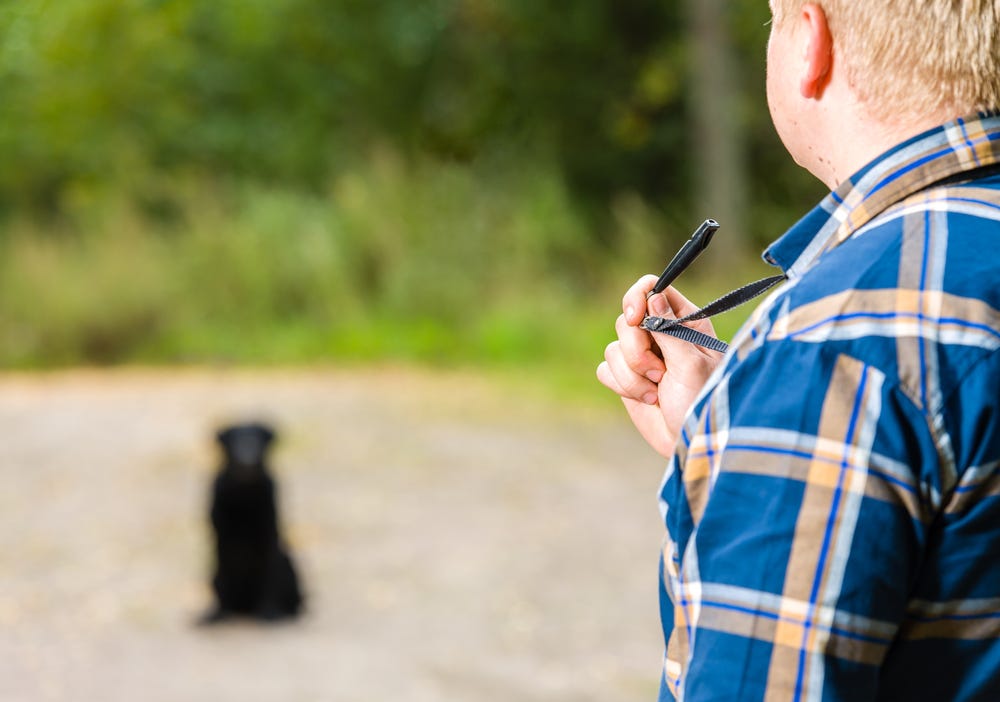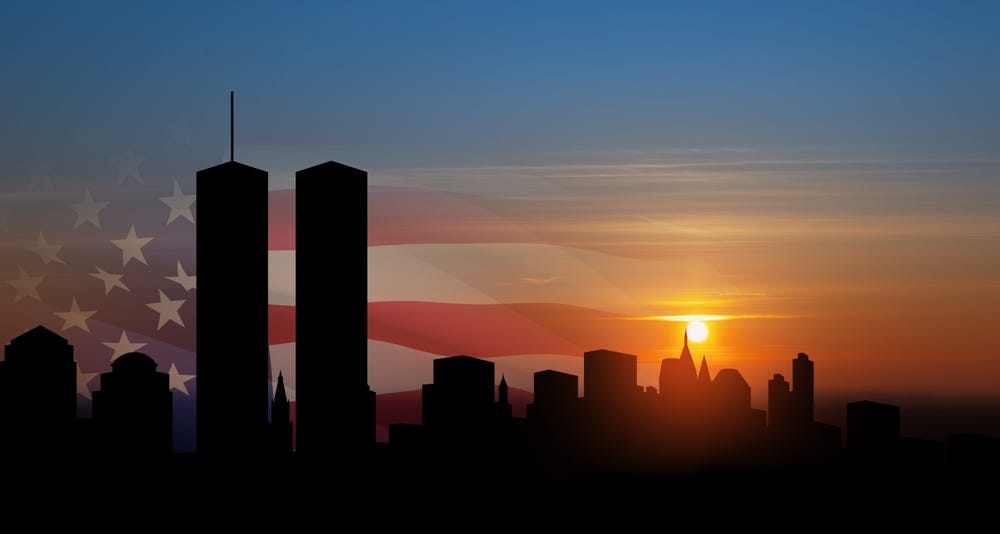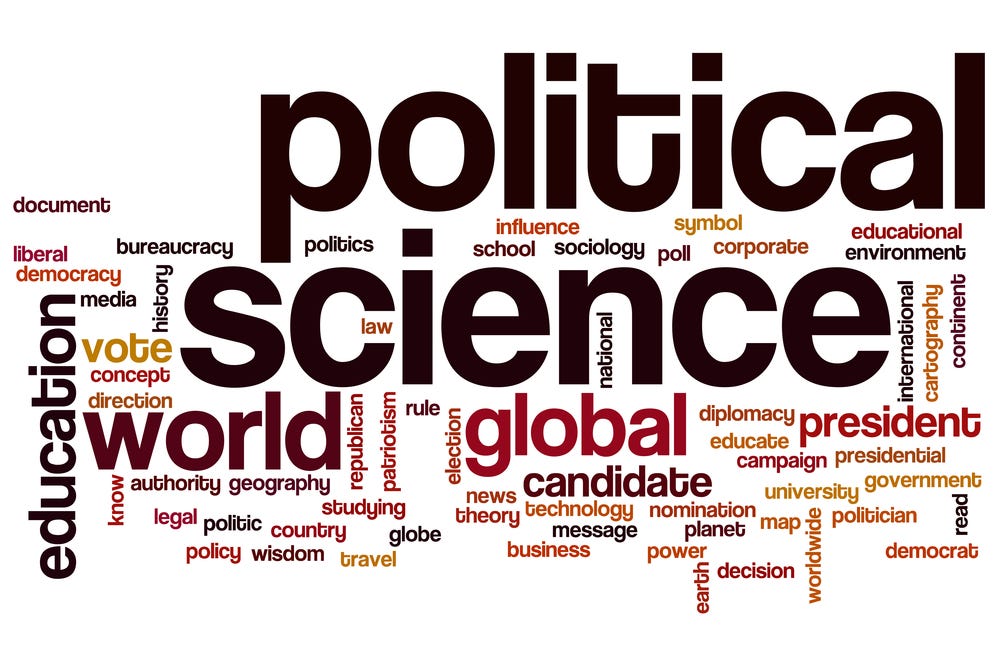E-Pluribus | September 13, 2023
Blowing the whistle on "dog-whistling"; the 9/11 effect; and the left's dominance of political science.
A round-up of the latest and best writing and musings on the rise of illiberalism in the public discourse:
George Case: Whistling in the Dark
What one person says and another person hears is often dependent on the relationship and trust (or lack thereof) between the two parties. Writing at Quillette, George Case says that the “dog-whistle” concept is often a lazy or disingenuous attempt to discredit an opponent’s speech by attributing to it the worst possible interpretation.
Denunciations of “dog-whistle politics” are now a familiar part of contemporary public discourse. The metaphor refers to the high-pitched sound that calls canines but cannot be heard by humans, and it is used to imply that an apparently neutral policy or argument is actually a subtle or coded appeal to the biases of a select audience.
[ . . . ]
The term’s origins are murky, but it made an early appearance in a 1988 remark by Washington Post pollster Richard Morin, who warned that a “dog whistle effect” should be considered in answers to the paper’s surveys when “respondents hear something in the question that researchers do not.”
[ . . . ]
At a time when an endless stream of printed and electronic speech is available to parse for hidden significance, detection of dog whistles and code words reflects widespread anxiety over mass manipulation in an overwhelmingly mediated age. During the 20th century, labor activism and civil-rights campaigns were believed to be fronts for Red infiltration secretly directed from Moscow, and rock songs were believed to be secretly pushing drug use or Satanism on impressionable young listeners. Things that seemed unremarkable on the surface—popular causes or popular music—were held to be insidious weapons for a much darker power. But the dog-whistle premise is often based on rigged logic: if you say something extreme, you’re in big trouble, but if you say something moderate, you may find yourself in big trouble anyway for disguising your allegedly authentic extremism.
[ . . . ]
[I]f someone holds an unpopular opinion—or if that opinion sways the wrong people—then it doesn’t matter how constructive its expression is. But when people argue a case, they use the most effective vocabulary they can muster, and just because a case is contestable (and every case is) that doesn't invalidate the language placed in its service. Isn’t a point made with sound evidence and considered phrasing thereby valid, whatever the point is?
Read it all here.
Jennifer Tiedemann: 9/11 Upended the Way Millennials Think About America
While September 11 first united Americans in ways not seen for decades, that unity was short-lived. Jennifer Tiedemann at Discourse Magazine explains how that horrific event shaped an entire generation’s view of America and how that influences politics today.
9/11 is to millennials what Pearl Harbor was to our grandparents. We know exactly where we were and what we were doing when we heard the news. Both events popped the safe-seeming bubbles in which we lived—suddenly, we found ourselves amid a fight taken to America’s shores.
But the similarities pretty much end there. While Pearl Harbor galvanized Americans to make sacrifices for their country, we were not asked to give up much in the wake of the Sept. 11 attacks. In fact, we were told to go back to our everyday lives. After 9/11, many Americans expected a surge in military enrollment, possibly a draft, but with the exception of a brief bump in enlistments right after the attacks, neither materialized.
[ . . . ]
One reason why people my age no longer have faith in their country is that they don’t have faith in its core institutions. While trust in institutions has cratered among American adults in all age cohorts in the years since 9/11, the drop has been particularly precipitous among millennials. A 2015 survey from Harvard’s Institute of Politics, for example, found that three-quarters of millennials “sometimes” or “never” trust the federal government, and two-thirds of them say the same of the president.
Why the lack of trust in institutions, particularly political ones? Events of the past two decades—open-ended wars in Afghanistan and Iraq, for example—have tested Americans’ belief in those running the country and left Americans skeptical that we can unequivocally win anymore. And for millennials, these failures of political leaders have been the norm throughout our entire adult lives. This is not exactly a recipe for great faith in America’s actions.
[ . . . ]
Sept. 11 also kick-started a political realignment that millennials now find themselves in the middle of. I was able to vote in my first presidential election in 2004, when George W. Bush faced John Kerry, who ran on his opposition to the Iraq War. But the party tables have certainly turned since then. These days, it seems just as likely, if not more likely, to hear calls for non-interventionism coming from politicians on the right, at least the populist contingent, as on the left. Neoconservatism dominated the Republican politics of my youth, but the experiences of the wars in Afghanistan and Iraq made that strain of political thought anathema to many of today’s GOPers.
Read it all.
Robert Maranto: I’m A Conservative. Is There Still A Place for Me in The Field of Political Science?
Robert Maranto of the University of Arkansas is a lonely conservative member of the American Political Science Association. At The Hill, Maranto bemoans the lack of representation from the right side of the ideological spectrum in the field of political science and is pessimistic about any reversal of that imbalance in the foreseeable future.
This week, thousands of social scientists are meeting in Los Angeles for the 119th annual American Political Science Association meeting. I’ve attended nearly every APSA since 1984, a third of its existence and most of my life. Seeing old friends, new books and countless panels exploring politics is the highlight of my year, even though I am one of the roughly 10 percent of political scientists — not all on the down-low — who usually vote Republican.
But will academia remain open to people like me and to the unique perspectives we bring? Until recently, I assured libertarians and conservatives that unlike much of academia, political science had a tent big enough for them. Today, as academia becomes as leftist as Rush Limbaugh always said we were, I am not so sure.
[ . . . ]
Unfortunately, pluralism is fading. I fear that in my remaining years (I’m 65) no conservative scholar will ever lead APSA, even though as recently as the 1990s, James Q. Wilson and Nobel Prize-winning economist Eleanor Ostrom did so.
From what I can tell, not a single open Republican now serves on the 31-member APSA governing council. That leaves half the country unrepresented politically in an organization whose job is to promote political research about all the country, and the world.
[ . . . ]
In 2021, activist threats of violence led the APSA annual conference, at the last minute, to move online its 10 panels involving the right-wing Claremont Institute, because of Claremont’s association with John Eastman. Eastman, who currently faces disbarment and a criminal trial for election interference in Georgia, had written the infamous six-page memo suggesting that Vice President Mike Pence could lawfully invalidate Electoral College votes for Joe Biden when Congress convened on Jan. 6, 2021 to certify the 2020 election.
Rather than hold its panels online, Claremont pulled out altogether, which seemed to be what some wanted.
I detest Eastman’s views on the peaceful transfer of power, and more to the point he was simply wrong in many of the assertions that underpinned his arguments. But I also believe that scholars fight bad ideas of all political varieties with debate, not banishment, and certainly not through guilt by institutional association with those who hold erroneous or even detestable viewpoints.
Further, ending its longtime association with Claremont leaves APSA without any significant organized conservative presence, which is a travesty for representation. Notably, the Claremont panels were always among the best-attended at APSA annual meetings. Two years on, APSA should bring back Claremont, or something like it.
Read the whole thing.
Around Twitter
A short thread with a few excerpts from The Canceling of the American Mind by Greg Lukianoff and Rikki Schlott, out on October 17, 2023, via Steve Stewart-Williams:
When asked what Canada contributed to this year’s G20 summit leaders' declaration, the first thing that popped into his head was . . . (click for video):
And finally, via Zaid Jilani, if this doesn’t illustrate the slippery slope of “equity,” what would?










"In the name of equity, a Canadian school library is emptied of all books published before 2008..."
Egalitarianism always and only means that everyone should be equally stupid, equally ignorant, and equally helpless as passive clay in the hands of wise and benevolent social engineers.